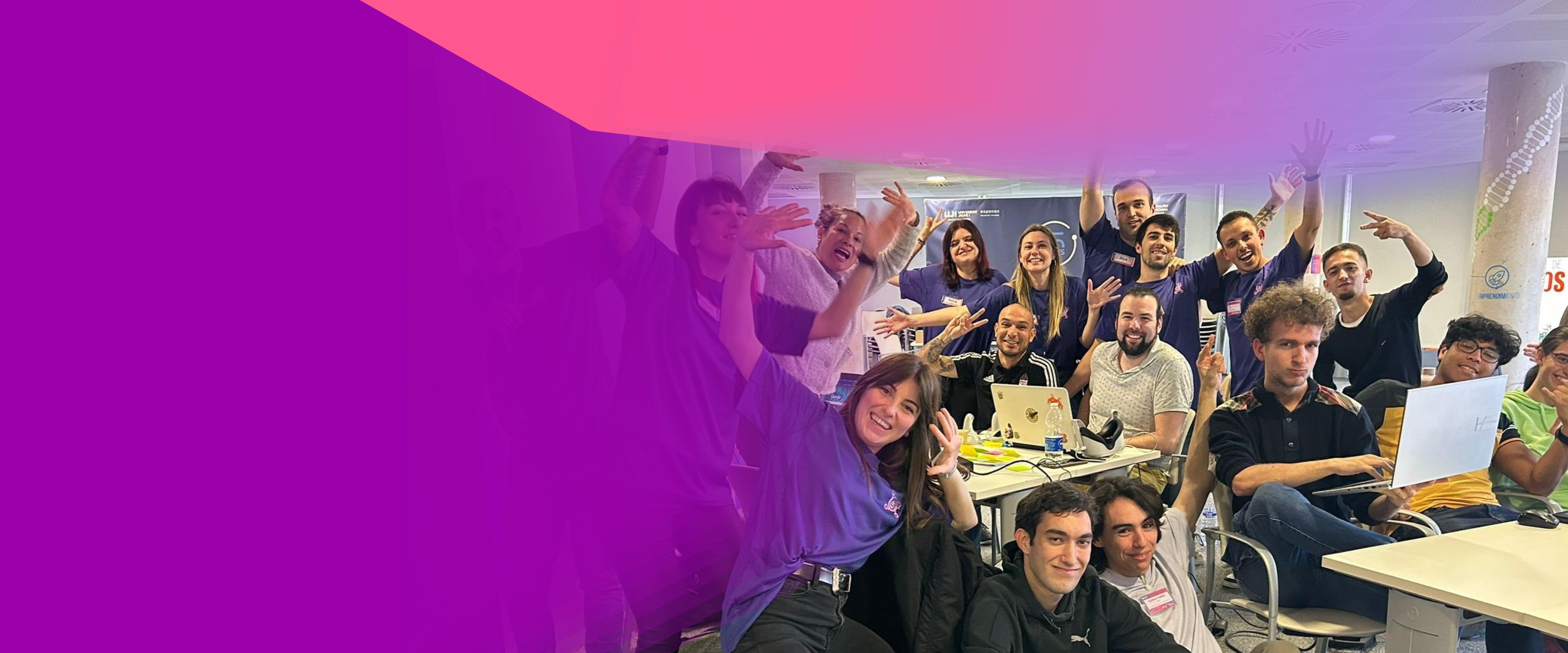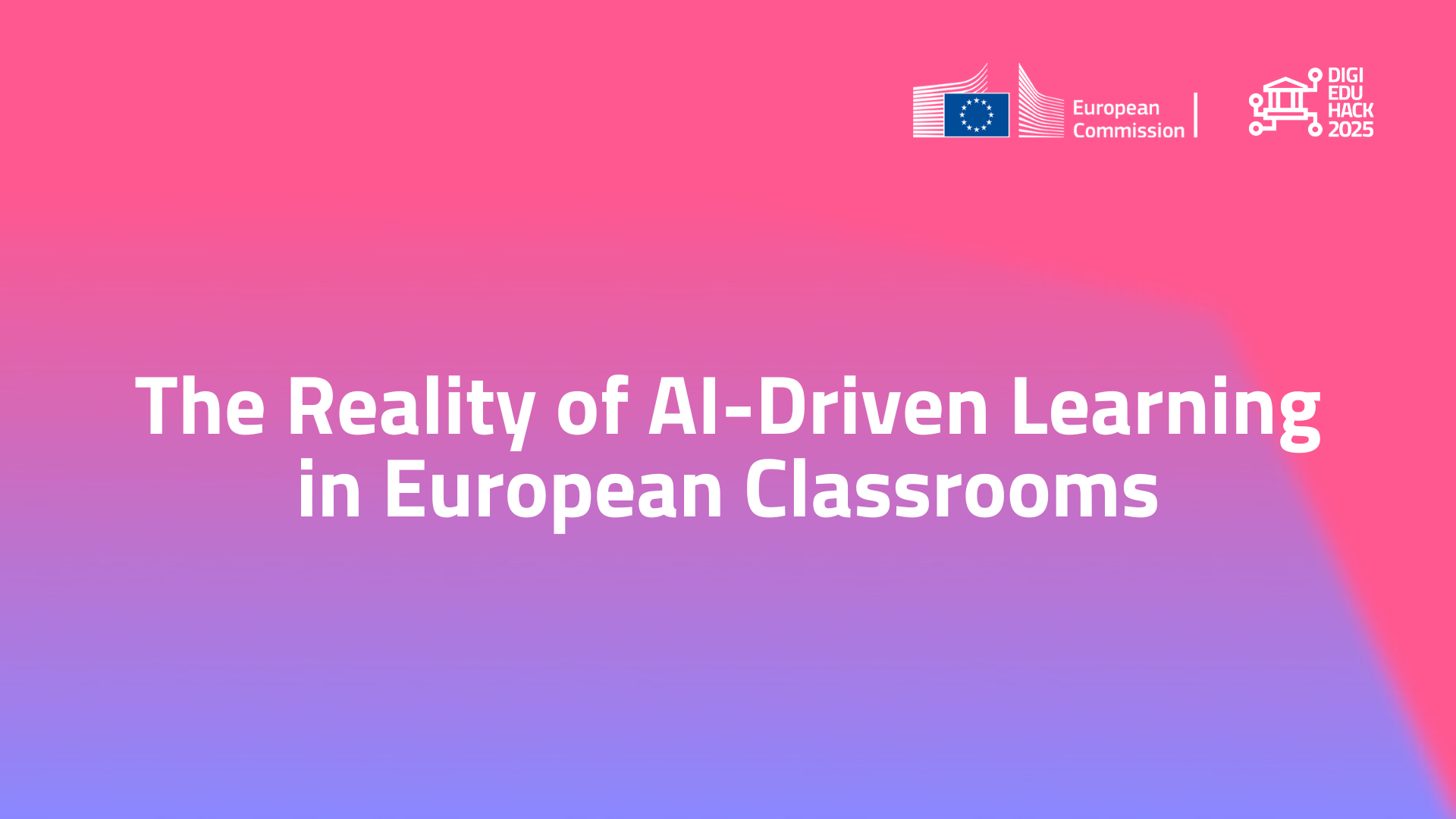The Reality of AI-Driven Learning in European Classrooms
AI has become an everyday reality for education, especially since the public launch of ChatGPT in 2022. So, what is the true reality, challenges, and opportunities, of this emerging technology in teaching? These questions guided the first DigiEduHack webinar of 2025, with 4 experts in European education, teaching, and research.
AI in the Classroom: What Are We Seeing?
Opening the discussion with the classroom experience in higher education,
Amila Akagic from the University of Sarajevo shared that her students are using AI tools like ChatGPT, Claude, Gemini, and LLaMA more and more—especially when writing papers or trying to understand complex topics. She has seen clear improvements in their English writing and confidence when tackling difficult concepts.
But she also pointed out a growing risk: over-reliance. Some students rely too much on AI tools without knowing whether the answers they get are correct.
Professor Vlad Bocanet from Technical University of Cluj-Napoca added that students often do not admit to using AI tools, but the signs are clear in their work. He encourages its use, especially in subjects like statistics, but says it is important to teach students how AI works so they can use it wisely.
To close the first part of the webinar, participants were invited to answer a poll with the following question: How familiar are you with the use of AI tools in your educational context? A clear majority (82%) of attendees said they already use AI tools regularly in their classrooms or education settings.
Practical examples of AI use
During the discussion, speakers shared inspiring real-world applications of AI by their students. One group is working on a tool to identify local wildlife using video footage. Another is developing a way to recognise handwritten text in Bosnian—showing how AI can support both creativity and problem-solving.
Who is responsible for the ethics of AI in education?
There are several major ethical concerns that education institutions face when integrating AI into classrooms—including over-reliance on technology, data privacy and GDPR compliance, algorithmic bias and fairness, and lack of transparency in AI decision-making.
This part of the webinar was led by Mihajela Črnko from the International Research Centre on Artificial Intelligence (IRCAI) and Eva-Maria Infanger from MatheArena, who is both a teacher and researcher. Both speakers emphasised that ethical responsibility must be shared. It is not just up to the developers of AI tools—teachers, students, schools, and policymakers all have a role to play.
Mihajela explained that Slovenia already had strong data protection laws in place before AI tools became widely used, which has helped schools manage privacy concerns effectively. In addition, Eva-Maria stressed that these technologies must be designed with people in mind. She noted that teachers often worry about losing their creativity or connection with students when using AI—reminding us that human values must remain at the centre of innovation.
How will AI change the teacher’s role
Amila believes teachers will remain essential. AI may be able to explain concepts, but it cannot understand students’ feelings or create real human connections. Empathy, she said, is something only people can bring to the classroom.
Vlad added that the teacher’s job has already changed. Instead of simply sharing information, teachers now help students make sense of what they find online or through AI. That role—helping students think critically and ask the right questions—is more important than ever.
In terms of the digital divide and whether AI can help bring better education to schools in rural areas, Mihajela believes that in Europe, thanks to strong infrastructure and support from governments, the gap is not likely to grow wider. But it is still important to make sure all schools—no matter where they are—have fair access to the tools they need.
You can now watch the full webinar on on DigiEduHack’s YouTube Channel for more practical insights, honest reflections, and plenty of inspiration for teachers, students, and anyone planning to take part in this year’s DigiEduHack events, you can find the full recording of the webinar is now available
Register for upcoming webinars
Five more webinars are planned between now and November, each covering different aspects of the future of digital education.
Next webinar: Building Digital Literacy Through Hackathon Challenges, May 14, 2025: Register here
Whether you are a teacher, student, parent or policymaker, this series is for you. Together, we can shape the future of learning—with care, creativity, and human values at the heart of it.

